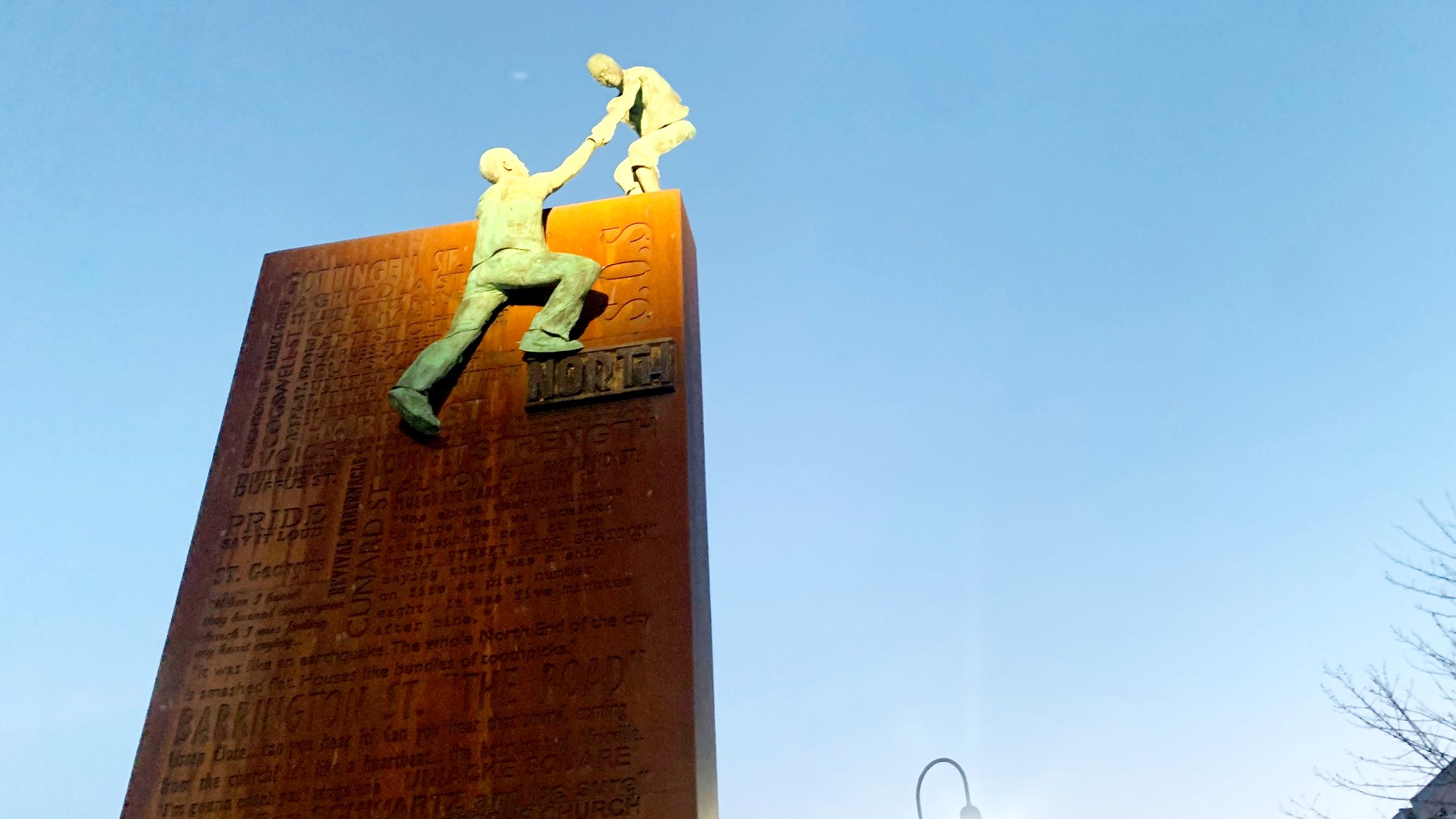Blacks, Latinos earn less than their counterparts, Statistics Canada reports
Asian minorities top list of weekly wage earnings in Canada

caption
(File photo) The freedom monument, in front of the North End Halifax public library, on Gottingen Street.Black and Latin American Canadians earn the least out of 10 minority groups each week in Canada on average, according to a Statistics Canada report.
The report, published Jan. 26, used data from the 2016 census and found that, among the 10 visible minority groups surveyed, Black and Latin American Canadians have the biggest wage gap per week compared to other Canadians.
African Nova Scotians make up 44 per cent of the racially visible population in Nova Scotia.
According to the report, in 2015 the average working Japanese Canadian man between 25-44 earned $1,750 a week, while Black Canadian men in the same categories earned an average of $1,210 a week. White men earned an average of $1,530.
Other minorities out-earned their counterparts, including Chinese, Korean and South Asian men and women.
The report, titled The weekly earnings of Canadian-born individuals in designated visible minority and White categories in the mid-2010s, was written by Theresa Qiu and Grant Schellenberg.
“The lower weekly earnings of the Black population is something that really stands out here,” Schellenberg says.
Lynn Jones worked for the federal public service for 35 years, including working in specialized services related to the African Nova Scotian community. She was also a union activist as a member of an anti-racism task force which created a report in 1997 through the Canadian Labour Congress.
The report made a long list of recommendations for the federal government on how unions can challenge racism in the workplace.
“That report wasn’t supposed to sit on a shelf, it was supposed to be a living document, and very few recommendations were ever completed,” Jones says.
The Statistics Canada report backs up Jones’s contention that not much is changing other than that the wage gap is growing.
Jones says that the most predominant reason for the wage gap for Black Canadians is institutional and internalized racism.
“The type of experiences we bring aren’t valued in the same way. People get used to rejection for so long that they internalize it,” Jones says.
In her work, Jones would see Black and white workers with the same level of education, where the Black person worked in the mailroom and the white person would be forwarding their career.
“They internalize the concept that there’s something wrong, they don’t have something or they lack something,” Jones says.
Jones says that there needs to be more work done to close this gap, and it needs to start with people acknowledging their privilege and the power imbalance in the employment sector.
She said more initiatives need to happen in the workplace to dismantle these environments of privilege. While some programs have been implemented over the years, Jones says that these programs need to be handed over to the African Nova Scotian community because they know what the community needs.
“No organizations do this, our hands are tied because we have to do whatever the government deems acceptable,” Jones says.
She urged the government and employment institutions to open up Black employment agencies and to hire outreach co-ordinators.
“In the past we did have some people helping from our communities, and that is how people were getting jobs and getting promoted to higher levels,” Jones says.
Schellenberg notes that this report will also be updated with the 2021 census numbers when they are released.
About the author
Hannah Bing
Hannah Bing is a Halifax based writer who grew up in Nova Scotia. She loves writing about music, animals and her community. Her interests include...
